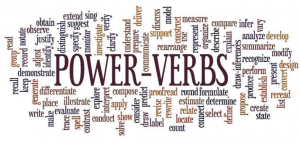 If you don’t already know about the power of verbs, it’s good that you’re reading this – because verbs are very powerful.
If you don’t already know about the power of verbs, it’s good that you’re reading this – because verbs are very powerful.There is something about writing that makes us express ourselves more formally than we would do when speaking. For example, you might chat with a colleague in the staff canteen about how you are going to realise your department’s goals. But when you sit down to write a report about it, for some reason you find yourself writing about ‘the realisation of our goals’.
This habit is very common. What happens is that instead of using a verb, for example, ‘to realise’, you use the related noun, ‘realisation’. To use the correct term for this bad habit, these are called nominalisations, meaning using the noun form of verbs.
Let’s look at some more examples.
Noun phrase Verb
the avoidance of avoid
the improvement of improve
the provision of provide
take into consideration consider
undertake an analysis of analyse
Noun phrases appear all over our writing. They lengthen your sentences and they make your writing less lively, less human and more official sounding. Let’s look at some sentences now:
Noun phrase
We ensured the motivation of staff with the introduction of Learn at Lunch sessions.
Verb phrase
We motivated staff by introducing Learn at Lunch sessions’.
Noun phrase
Newton Hospital made a decision to expand its paediatric services.
Verb phrase
Newton Hospital decided to expand its paediatric services.
Noun phrase
The judge said we must take into consideration the age of the offender.
Verb phrase
The judge said we must consider the offender’s age.
When you are writing, it’s good to remember that too many noun phrases make writing very dull, and they obscure the real meaning of a sentence. Always remember the power of verbs.
Tip: Watch out for nouns that end in -ion, -ment, -tion, -ence, -ancy, -ant. You can often change them into verbs.
